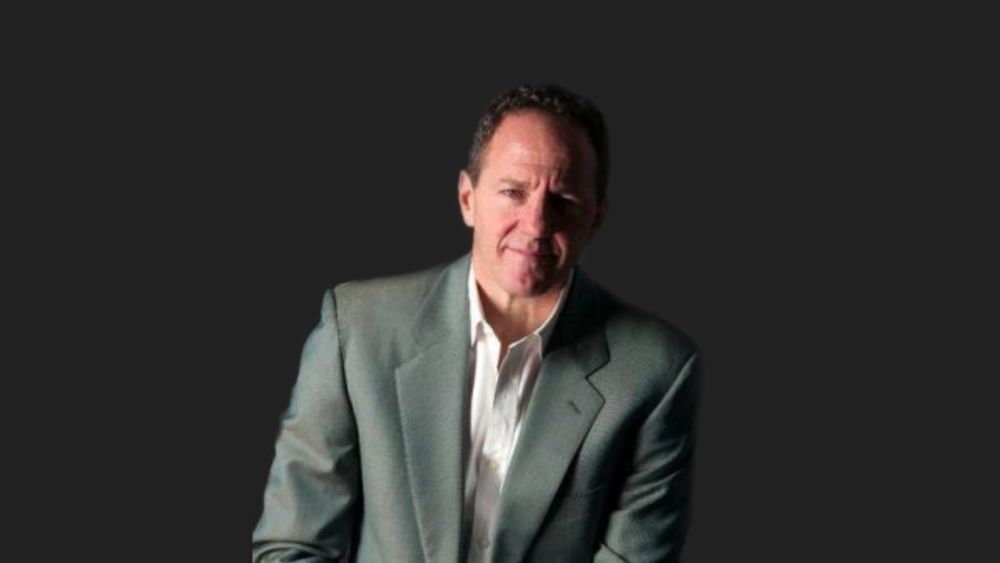- Iterate
- Meet The Team
- How John Katzman's Failed Architecture Career Transformed Higher Education
How John Katzman's Failed Architecture Career Transformed Higher Education
Tackling one big problem at a time, rather than trying to fix every single issue at once, is how John Katzman has been able to start three transformative education companies.

Despite studying architecture at Princeton, John Katzman says he was not particularly good at it. But when he erred at a sketch or model, all the other members of the architecture program didn’t just judge the whole thing as a failure. They pointed out the aspects they liked and didn’t, plus asked questions about the decision-making process. Everyone could disagree on aesthetics as long as there was a thoughtfulness to the decision.
While this type of iterative thinking didn’t lead him to architecture, it did prove to be very important for his career in higher education. Tackling one big problem at a time, rather than trying to fix every single issue at once, is how he’s been able to start three transformative education companies. First was The Princeton Review, the test preparation and college admission behemoth he started the same year he graduated and ran for more than 25 years. The next year, 2008, Katzman founded 2U, which helps students earn online degrees and was the largest traditional Online Program Management (OPM) company in the world. While at 2U, he popularized the now-popular revenue-share model in which OPMs take a percentage of a university’s tuition revenue in exchange for program management.
Noodle Partners might be the most innovative of the three. Katzman took the foundation of what he popularized at 2U and almost flipped it to start the hybrid-OPM model at Noodle Partners. The company says they have since partnered with as many top universities for degree programs in the past two years as all conventional OPMs combined, and, buoyed by a it raised in March, plans on managing more than 100 universities by the end of the year.
‚ÄúYou start getting involved in education and you see so many problems you want to go after that are not the way they should be,‚ÄĚ Katzman said. ‚ÄúSo you build something, and some parts are good and some parts are bad, but you get a lot of feedback from your customers and employees and vendors, and you just remake it and remake it and remake it.‚ÄĚ
When Katzman first started 2U, the company intentionally hid a few aspects of its business model from universities. Unsurprisingly, people working for several hundred year old educational institutions did not often see the value in online degree programs. After a few years, though, as the company grew, Katzman started to see how this lack of OPM transparency made higher education more expensive for everyone ‚ÄĒ especially students. Noodle is now trying to unspool that strategy by managing the flexible degree programs of its partner universities, with both sides having an equally clear view of the entire budget.
‚ÄúPart of the opacity of the model was protecting it,‚ÄĚ Katzman said. ‚ÄúCertain parts of it were intentionally done that way. But as the OPM model has evolved, I think it took a much worse turn after companies established themselves as black boxes.
‚ÄúMy feeling was, ‚ÄėWouldn't it be better if I made a plan with our schools every semester and implemented it with open books? Wouldn‚Äôt that transparency make it easier?‚Äô ‚ÄĚ
That packaging does not stop at course programming. According to Katzman, there are schools using OPMs charging students anywhere from $3,000 to $5,000 just for packaging their student aid, another reason Noodle decided to be open with their costs and practices.
‚ÄúThese are students who graduate with about $25,000 on average in debt at these schools,‚ÄĚ he said. ‚ÄúIn other words, 20% of their debt is simply the cost of the school packaging it, which is bonkers. That's not interest, mind you, and it's not right. Let's fix that and get back to the student courses and boom, we've covered 20% of a problem.‚ÄĚ
In three iterations of higher education companies, Katzman is now running one that saves both universities and students money. It’s not that the prior two companies were failures in that regard. It’s that he’s continued to try and make his corner of education more equitable, one iterative thought and plan at a time.
‚ÄúThe process itself is what's fun and engaging,‚ÄĚ he said. ‚ÄúThere's no finish line. There is simply the next fix. Everybody goes into higher education thinking they're just going to solve it and that hasn't worked for anybody. Education remains unsolved. But if you go in thinking, ‚ÄėIf I can make it a little less expensive‚Ķ‚Äô
‚ÄúYou can easily burn through a lot of decades in the education space trying to marginally improve it.‚ÄĚ
--
The Org is a professional community where transparent companies can show off their team to the world. Join your company here to add yourself to the org chart!
In this article


The ¬‹ņÚ¬“¬◊ helps
you hire great
candidates
Free to use ‚Äď try today


